10 Best DOOM Clones Of All Time, Ranked | Game Rant
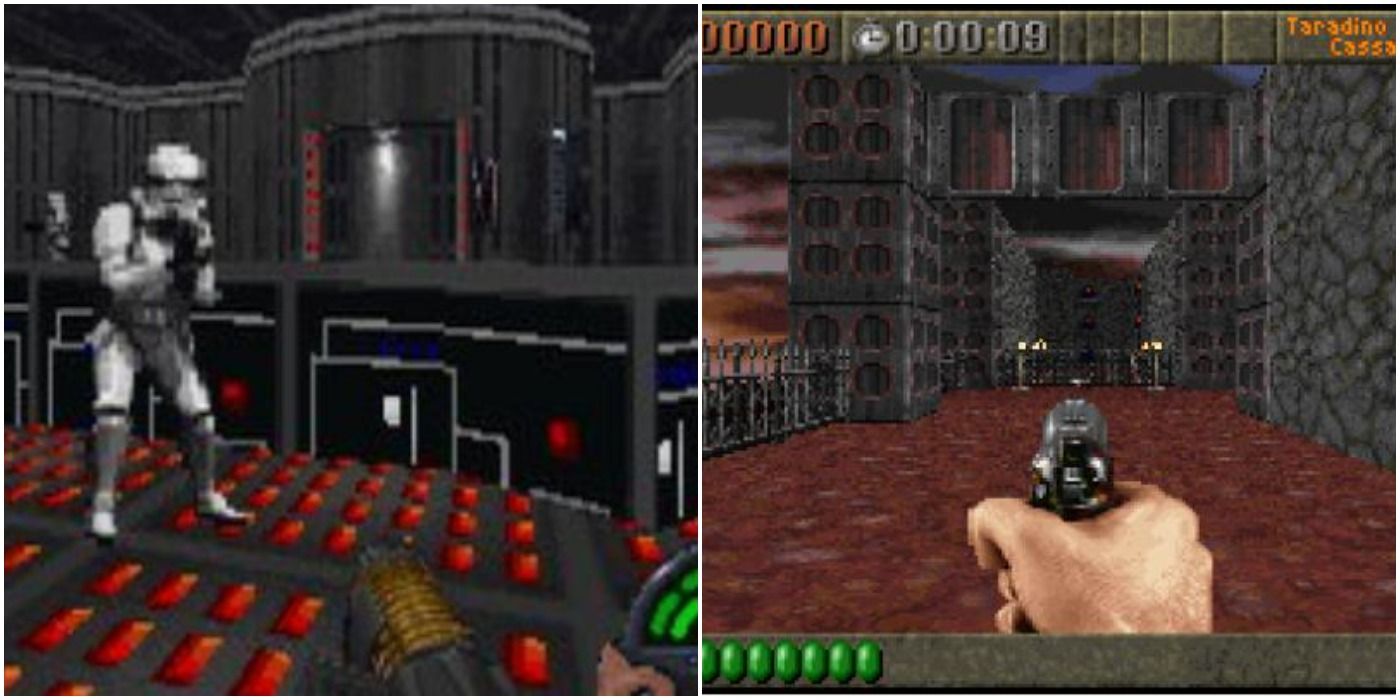
id Software's original DOOM is recognized today as being not only one of the most influential first-person shooters of all time but one of the most influential video games of all time, period. It wasn't the first game of its kind, as id Software's Wolfenstein 3D from the year before had a similar gameplay formula, but DOOM perfected the playstyle and consequently popularized it.
One similarity that all products have, whether it be video games, books, or shampoos, is that successful products will be imitated. Therefore, numerous games were released in the years that followed DOOM that all had very similar gameplay and became known simply as "DOOM clones."
10 Star Wars: Dark Forces

Considering the enormous amount of Star Wars video games that have been released over the last few decades, it makes sense that at least one of them would try to capitalize on the DOOM-hype. Star Wars: Dark Forces was released just over one year after DOOM and did a fantastic job of recreating id Software's FPS formula within the Star Wars universe.
It may surprise younger gamers that back in the 90s, LucasArts wasn't predominantly known to the gaming industry for their licensed Star Wars and Indiana Jones games. The company was acclaimed for its numerous excellent graphic adventure titles, such as Grim Fandango, Day of the Tentacle, and the Monkey Island series.
9 Disruptor

Disruptor is best known today for being the first title ever developed by Insomniac Games. US-based developer Insomniac Games has created some of the most beloved family-friendly games of all time, such as the Ratchet and Clank franchise and original Spyro the Dragon trilogy, as well as the last two Spider-Man games.
A DOOM-clone may sound like it's out of the comfort zone of a developer known for its platforming and wholesome adventures, though Disruptor is one of the unofficial genre's best.
8 Alien Trilogy
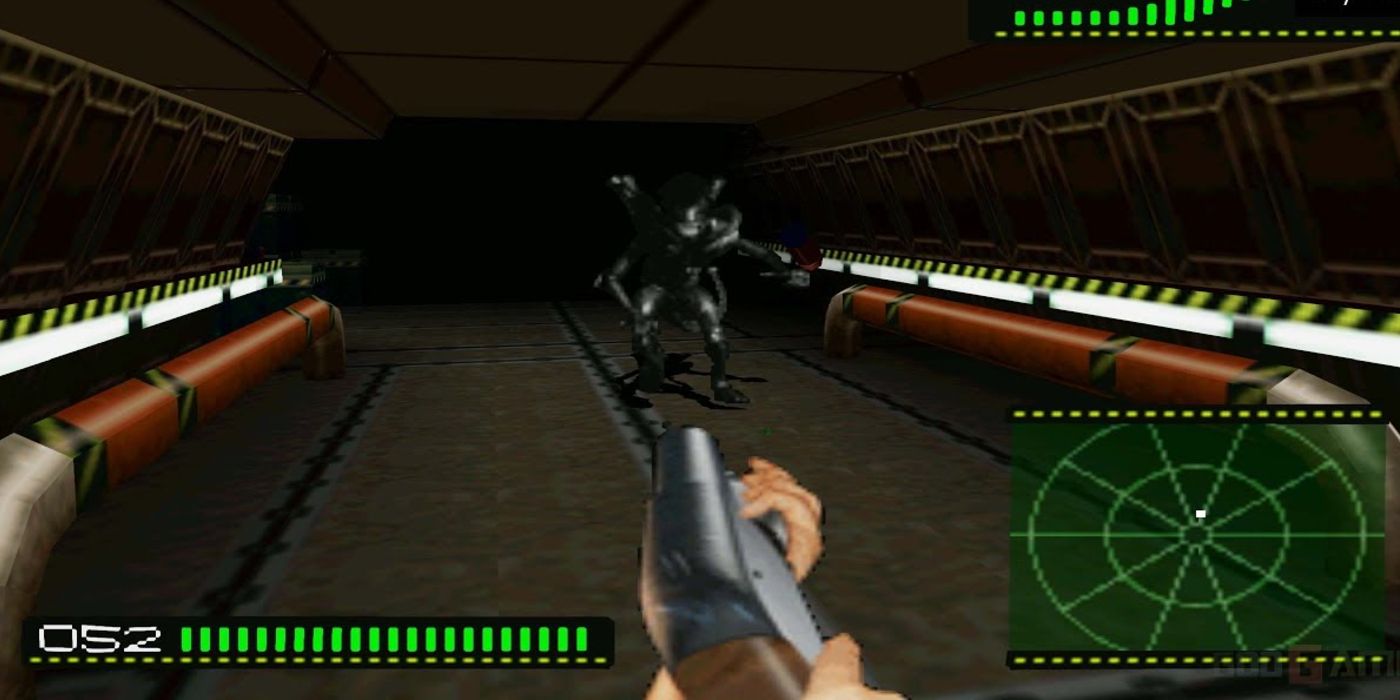
Alien Trilogy, much like the aforementioned Star Wars: Dark Forces, tried to differentiate itself from the many other DOOM-clones being released around the mid-90s by implementing the gameplay into the world of a well-known film franchise. The game was developed by the aptly named Probe Entertainment, which became known as Acclaim Entertainment before they went bankrupt in 2004.
Alien Trilogy's graphics and visuals struggled to impress, which was a significant issue for a movie-licensed game. However, the game nailed almost every other design area, particularly with the immersive sound effects.
7 Rise of the Triad: Dark War
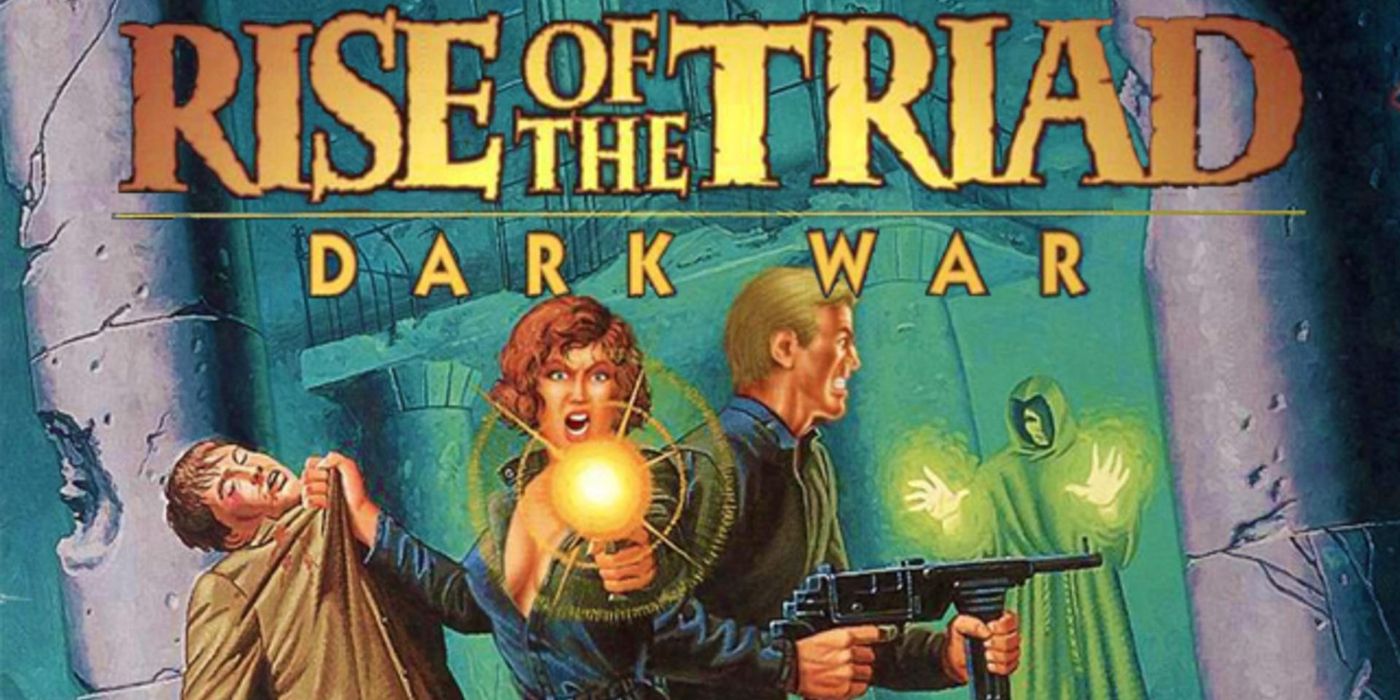
Rise of the Triad: Dark War was released almost exactly one year after DOOM by Apogee Software, which is today known as 3D Realms. The game put an interesting spin on the DOOM formula by giving players a selection of characters to choose from, each with their own strengths and weaknesses.
Rise of the Triad is set to receive some mainstream attention this year, over 25 years after it was initially released, as it was announced in 2020 that the game would be getting a remaster on Xbox One, PC, Nintendo Switch, and PlayStation 4.
6 Strife
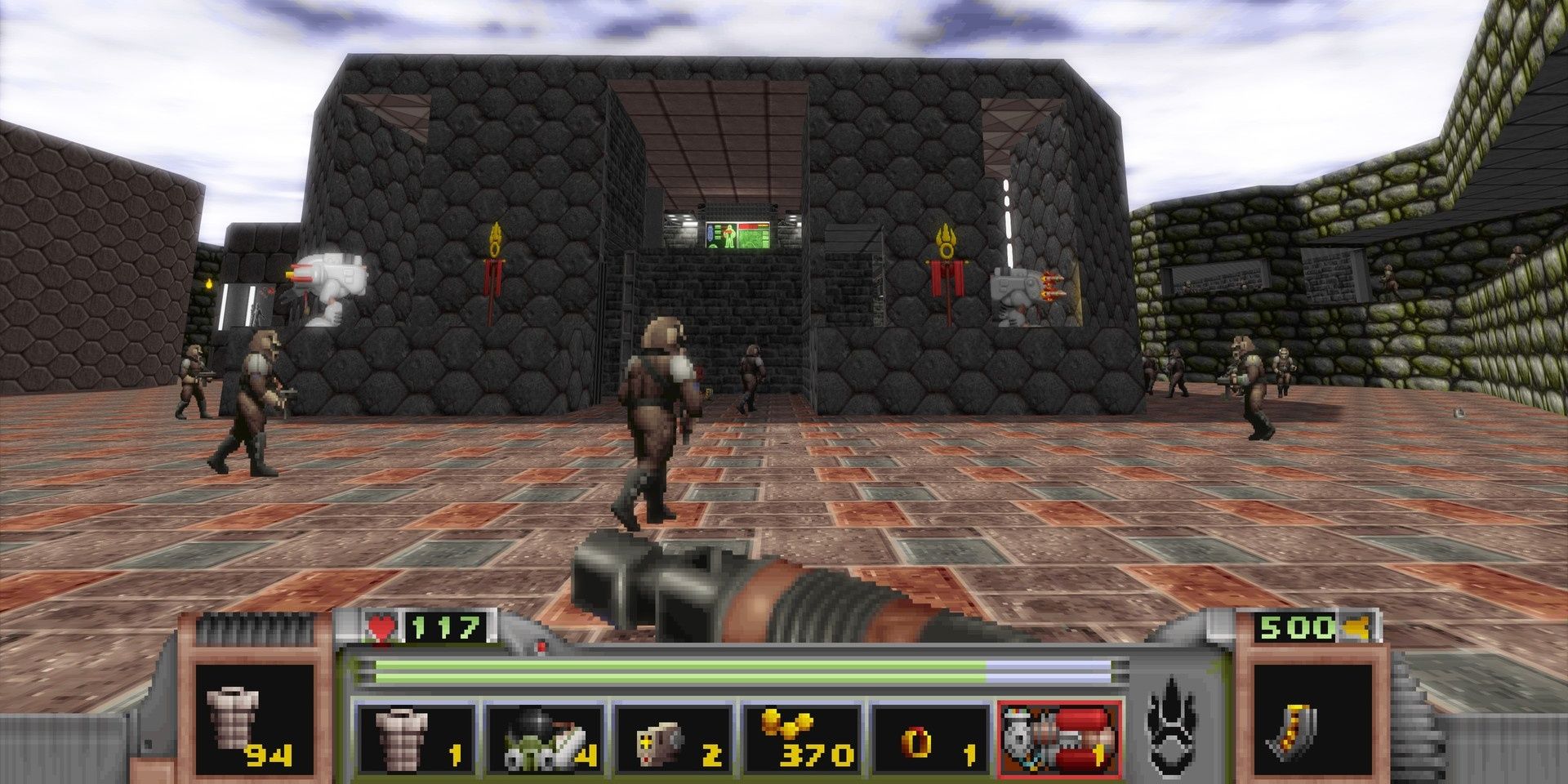
Strife was initially released in 1996 by Velocity Inc. The game was developed by Rogue Entertainment, who tried to improve upon the DOOM formula in a multitude of ways. Most notably, Rogue Entertainment implemented numerous role-playing elements into Strife, such as improvable abilities and NPCs in the game-world who players can interact with.
The Veteran Edition of Strife was recently released on the Nintendo Switch, giving a new audience of gamers the chance to try out the FPS-RPG hybrid.
5 Heretic
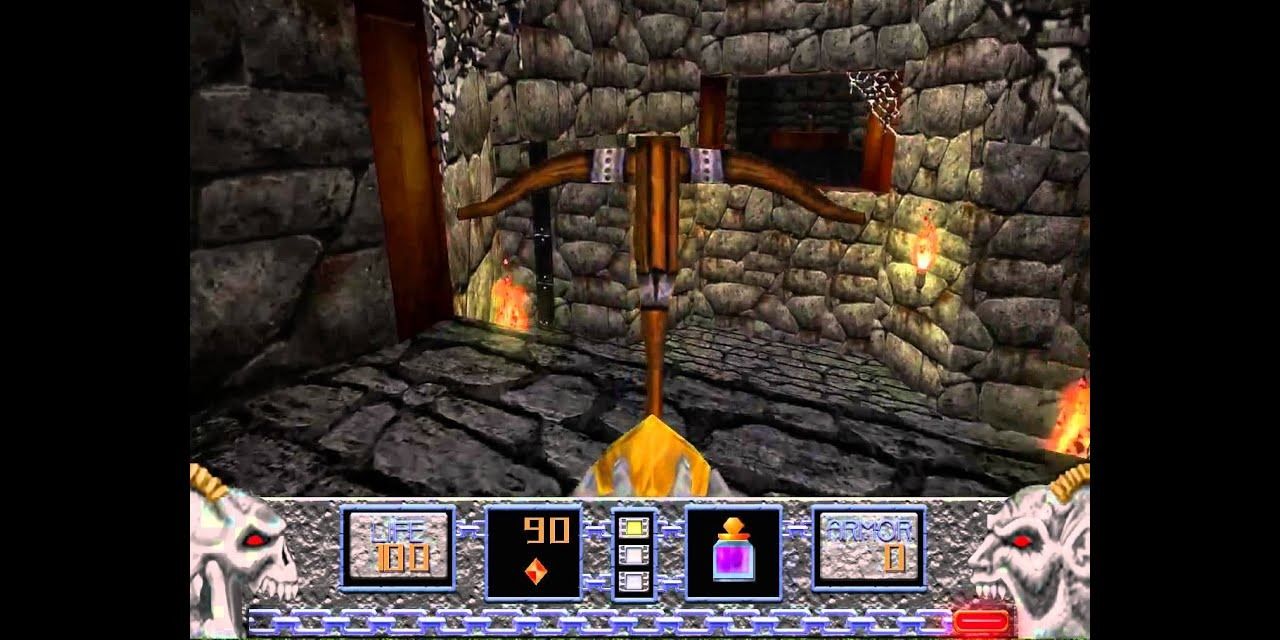
Heretic didn't try to hide its influences from DOOM; as large, bold writing on the game's front cover read "From the Publisher of DOOM," letting audiences know that Heretic would offer a similar experience. The game was developed by Raven Software and marked the beginning of the "Serpent Riders" trilogy.
Heretic is one of the most well-known entries on this list; this is not only because of the game's quality but also because it was available to so many people. It was released on Microsoft Windows, MS-DOS, Mac, PlayStation 1, Sega Saturn, and the Nintendo 64 in that order between 1995 and 1997.
4 Blood

The aptly named Blood was initially released in 1997 by GT Interactive Software, which was rebranded as Infogrames before changing names again to Atari, Inc. The game was developed by Monolith Productions, which is best known today for developing Middle-earth: Shadow of Mordor and Middle-earth: Shadow of War.
In May 2019, Blood received a remaster entitled Blood: Fresh Supply. The remaster was made by Nightdive Studios and is currently available on Steam among other platforms.
3 Hexen: Beyond Heretic

The second entry into the aforementioned "Serpent Riders" trilogy, Hexen: Beyond Heretic differentiated itself from other DOOM clones in a handful of ways. For starters, the game took a leaf out of Rise of the Triad: Dark War's book by giving players a selection of characters to choose from, each with differing abilities. Moreover, the game's levels were very open for the time, making the game feel less claustrophobic than DOOM.
Although they may not seem like much today, Hexen: Beyond Heretic's visuals were fantastic for the time and, along with the non-linear level design, helped make the game feel like a true evolution of the original DOOM.
2 Marathon 2: Durandal
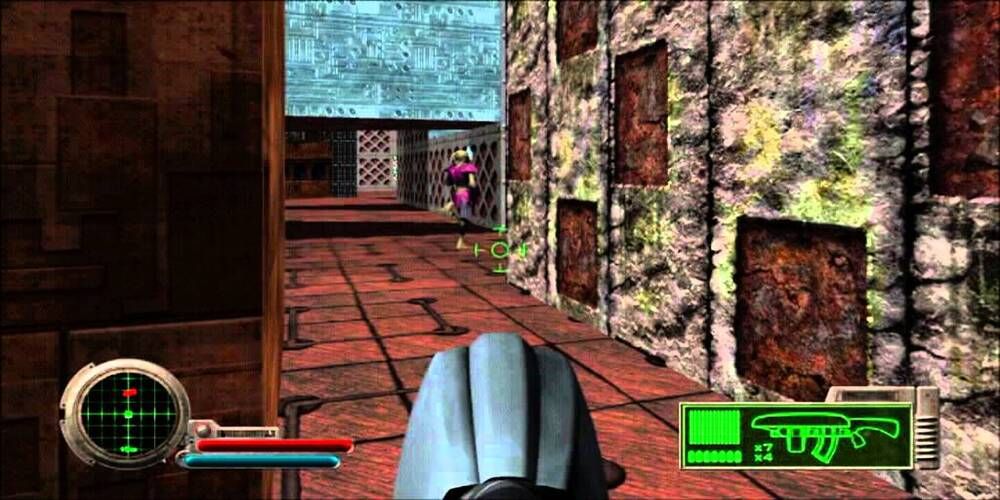
It's fair to say that the team behind Marathon 2: Durandal knows a thing or two about creating excellent first-person shooters, as the game was developed and published by Bungie. US-based developer Bungie created the original Halo trilogy, Halo 3: ODST and Halo: Reach, before creating the Destiny franchise. The Marathon trilogy has many similarities to Halo, leading to the franchise being considered a spiritual successor.
Marathon 2: Durandal was initially released on Mac in 1995 before coming to PC the following year. The game was later released on the Xbox 360's Xbox Live Arcade in August 2007, presumably to capitalize on the hype for Halo 3, which hit stores just over a month later.
1 Duke Nukem 3D
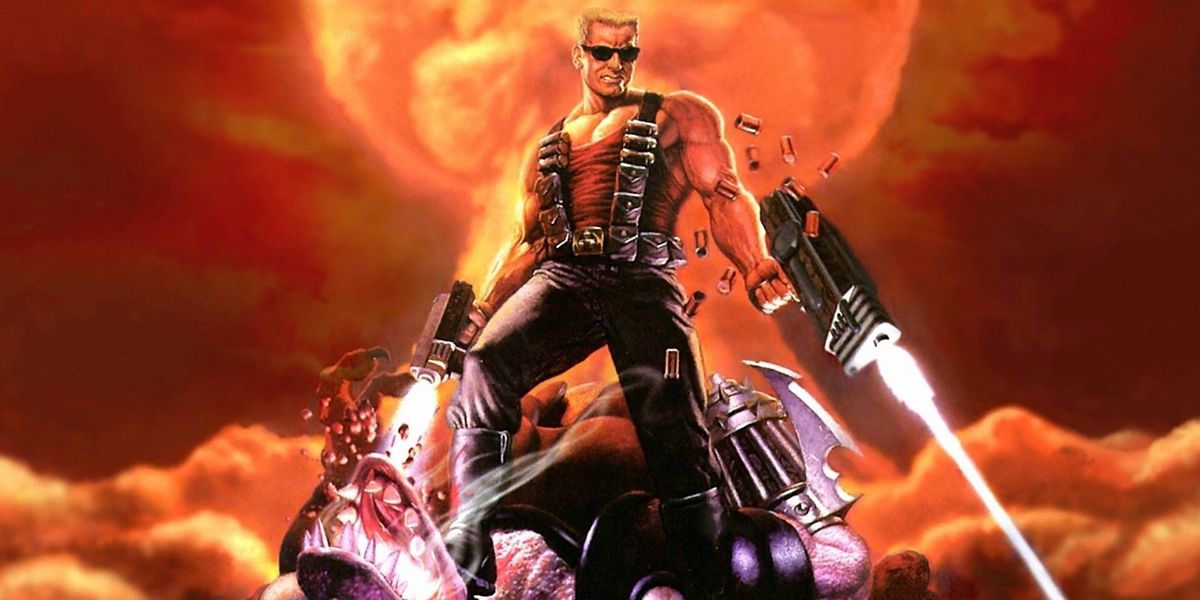
The Duke Nukem franchise was initially released in 1991 with Duke Nukem, a 2D platformer. The side-scrolling gameplay was repeated in the game's 1993 sequel before Duke Nukem 3D gave the franchise the DOOM-clone treatment in 1996. All three games were developed by the aforementioned 3D Realms, previously known as Apogee Software.
Although Duke Nukem 3D's similarities to DOOM are clear to see, 3D Realms clearly tried hard to make the game feel different from id Software's classic. Not only does the game take the same approach as a few others on this list by offering more open levels, but it also swaps the silent protagonist known as Doom Guy for the cocky, crude, and outspoken Duke Nukem.

Post a Comment